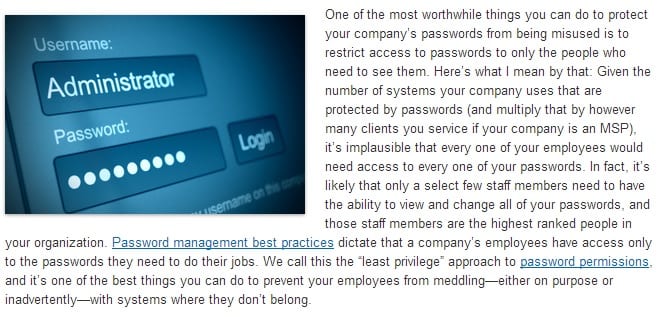A report on the Business 2 Community website dated August 8, 2013 details how a business can control the password usage of their employees. When sensitive information such as access details is involved, it’s better to go the extra mile when it comes to security. The following are recommendations on how to restrict passwords only to those who need them.
Passwords can already be quite a chore to maintain, and sharing them to the right people is an even more arduous task. The latter isn’t something to take lightly, as it is a basic yet crucial precaution against security breaches. A company is sure to have a number of passwords registered under its name, and it’ll need a reliable way to keep track of each while disseminating them only to the assigned personnel. Having handy password management software from an access firm like Access Smart, LLC could help simplify the process.

Typically, company passwords can be kept on a word or spreadsheet file that can be shared over the network. While certainly a solution, this tactic calls for multiple copies of the files so that employees of varying roles and ranks can discreetly open them individually. This, however, is an unrefined and time-consuming setup.
As an alternative, companies can turn to enterprise password management software. Such software should feature role-based access that only permits employees of a certain role and rank to claim a password. The software should also be capable of sharing passwords to larger teams of employees while allowing administrator changes to the system.
Companies do not need to develop their own password management solution; they can simply hire an access management firm to implement it. Normally, it would take a company’s IT department months to customize a password storage solution fit for the organization. Instead of trying to build a system from scratch, companies can simply purchase proprietary security products from other firms.
It sounds redundant to limit password access; it’s essentially putting security over security. However, it’s a necessary measure to prevent the intentional or unintentional misuse of this information. It’s a wise move for companies to leave the security work to professionals so that they can dedicate their energy to more pressing matters.



